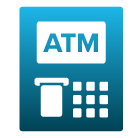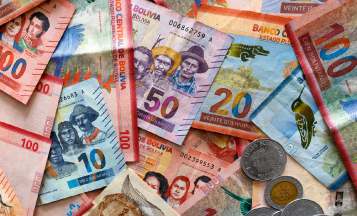Avoid Dynamic Currency Conversions When Traveling
When a merchant offers to convert your credit card transaction from the local currency into U.S. dollars, it might sound like a good idea because it is easier to but don’t be fooled. This is called dynamic currency conversion (DCC) and is an expensive and unnecessary fee for the cardholder.

Why so bad?
The only person who gets a good deal out of a DCC is the business owner.
Merchants will use a conversion rate that is much higher—as much as seven percent—than the going rate you’d receive at a financial institution if you exchanged U.S. cash for local currency. The merchant pockets the difference between the going rate and what they charge. Most foreign customers don’t challenge the fee because they aren’t checking the currency conversion math at the counter.
Travelers may think they can avoid the foreign transaction fee most credit cards charge by doing a currency conversion, which makes sense in theory, but in reality, the credit card company will charge the foreign transaction fee (usually three percent) in addition to the merchant’s dynamic currency conversion charge. The credit card company isn’t charging you for the fact that the purchase comes through as a foreign currency; they’re charging you for making a transaction abroad, regardless of currency.
Dynamic currency conversions can also apply to online purchases and PayPal transactions, so be sure to closely read all fine print when buying anything online from a foreign seller. Sometimes you must uncheck a box or opt out of a DCC charge on another page of the website.
Check your receipts and next credit card statement
Sadly, unscrupulous merchants will charge a DCC without the customer’s knowledge or consent when processing a purchase at their point of sale (POS) terminal. The conversion rates will still show up on the sales slip, but customers who are unfamiliar with DCC won’t question why the charge is showing up in U.S. dollars and not the local currency.
You are legally entitled to full disclosure of all conversion rates, fees, and the final costs charged for a transaction, along with the right to refuse DCC. If you were never given the opportunity to opt out of a DCC charge or refused it but the charge appears on your credit card bill later, you can dispute the charge with your credit card or the card network’s global compliance program.

ATMs and DCC
ATMs can also attempt to charge you for DCC—some more obviously than others. The charge may be termed as “locking in” or “guaranteeing” a conversion rate, which sounds safe and like a smart move. Instead, you should choose whatever option allows you to proceed without the conversion. Always select to be charged in the local currency, no matter how the question is phrased.
To help with conversion confusion, download a converter app onto your smartphone. The app will allow you to view current market exchange rates while connected to Wi-Fi or a cell phone network.
Category: Financial Literacy & Safety



